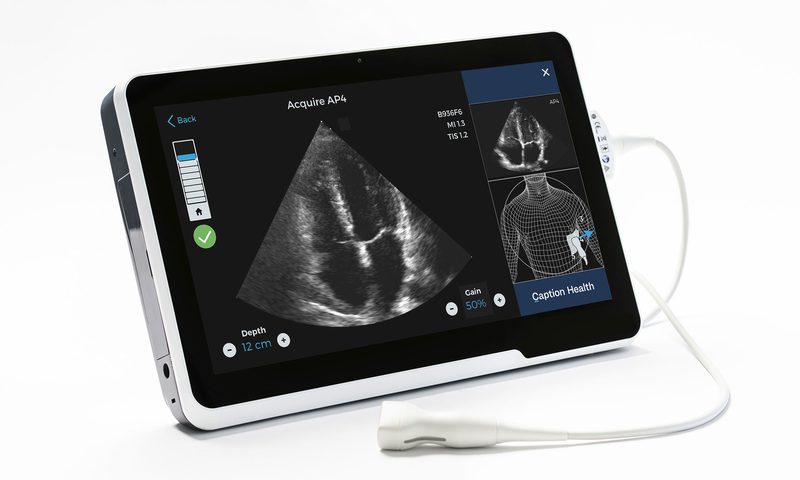The FDA approved the first artificial intelligence-powered software designed to assist and guide medical professionals without any specialized training through the steps of a cardiac ultrasound exam—one of the most common tools used to diagnose heart disease.
Developed by Caption Health, a San Francisco-based imaging company formerly known as Bay Labs, the program acts as a real-time co-pilot during an echocardiogram. It can show the user how to maneuver the ultrasound probe and provide feedback on image quality.
“Today’s marketing authorization enables medical professionals who may not be experts in ultrasonography, such as a registered nurse in a family care clinic or others, to use this tool,” said the FDA’s Robert Ochs, deputy director of the Office of In Vitro Diagnostics and Radiological Health, in an agency statement.
“This is especially important because it demonstrates the potential for artificial intelligence and machine learning technologies to increase access to safe and effective cardiac diagnostics that can be life-saving for patients,” Ochs added.
Dubbed Caption Guidance, the AI software was developed using machine learning techniques that trained the software to spot high-quality 2D ultrasound images of the heart and automatically record the best video clips from a particular view.
The FDA granted the program a de novo approval for use with a specific Teratech ultrasound system, but the agency said it has the potential to be used with other imaging systems with the proper technical specifications.
“No patient should have to forgo a potentially life-saving cardiac ultrasound,” said Caption Health CEO Andy Page. “Through the power of artificial intelligence, Caption Guidance will provide patients with unprecedented access to ultrasound when and where they need it most.”
The company plans to first deploy the software in acute point-of-care settings such as emergency rooms, critical care units and anesthesiology departments. These areas feature high volumes of patients where echocardiograms are used to assess and triage patients presenting with chest pain and shortness of breath as well as to deliver diagnoses of cardiac arrest and other heart conditions.
In one clinical study, eight registered nurses with no prior ultrasound experience used the Caption Guidance software to conduct exams on 240 patients. Those readouts were then assessed by a panel of cardiologists to determine their quality.
The RNs were able to successfully acquire measurements of ventricular size and function as well as cases of pericardial effusion, or excess fluid surrounding the heart muscle.

